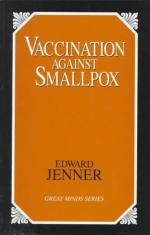|
This section contains 662 words (approx. 3 pages at 300 words per page) |

|
Immune stimulation refers to the stimulation of the immune system by an external source. The stimulation can confer a protective effect against microorganisms. As well, immune stimulation shows promise as a means of obtaining an immune response to conditions such as cancer.
Conventionally, the immune system is stimulated into producing antibodies or other infection-fighting constituents in response to an infection. Immune stimulation seeks to elicit the immune reaction before infection or other malady strikes, as a means of preventing the infection or malady. This approach is analogous to the administration of components of weakened or inactive influenza virus to protect people from the subsequent onset of influenza.
The roots of the use of immune stimulation as a vaccine date back to the late nineteenth century. Then, William Coley, a New York bone surgeon, began treatments in which he injected cancer...
|
This section contains 662 words (approx. 3 pages at 300 words per page) |

|


